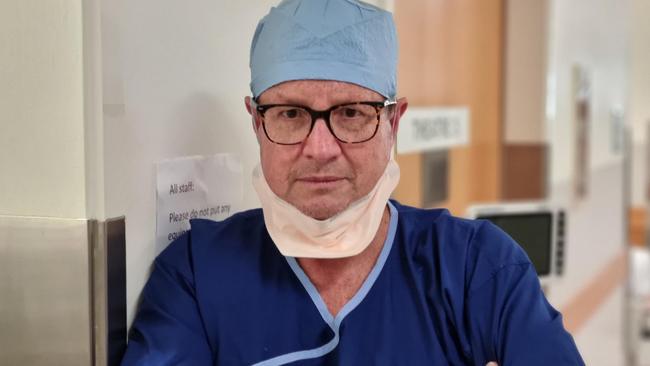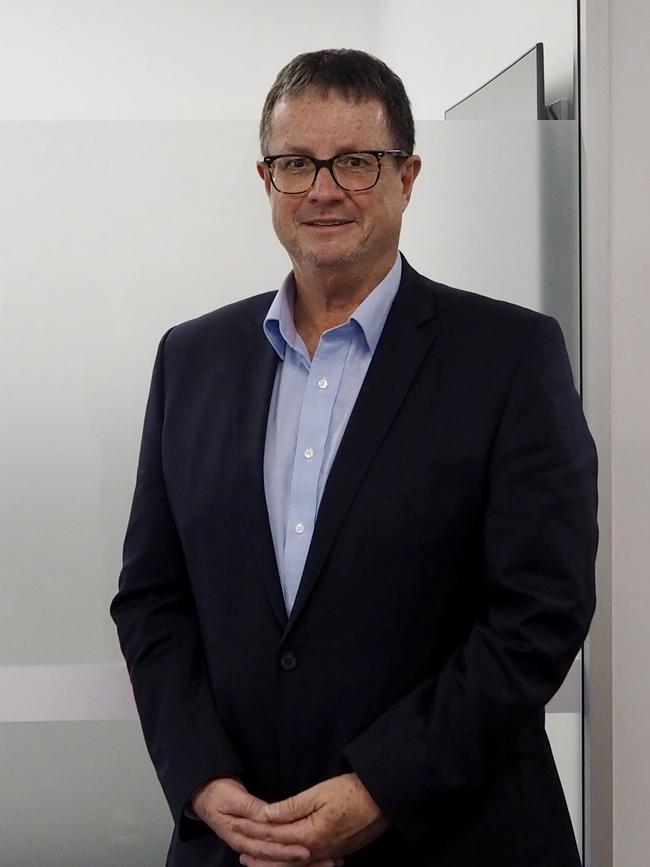AMA calls for a new umpire to resolve disputes between hospitals and health funds
The spat between Healthscope and HCF – the second high-profile dispute between a private hospital group and health fund this year – has led to renewed calls for a new regulator.

The Australian Medical Association has called for the establishment of an independent umpire to oversee negotiations between health insurers and hospitals – and help save patients money – after funding talks failed between Healthscope and HCF.
Healthscope, Australia’s second biggest private hospital operator, has terminated its funding agreement with HCF in a move widely seen as an extreme negotiation tactic that will force patients to pay hundreds of dollars in out-of-pocket costs.
It is the second high-profile spat between a health insurer and private hospital, following Ramsay’s feud with Bupa which was eventually resolved in August.
AMA president Steve Robson said the disputes “damage the whole” private health sector and underlined the need for an independent umpire to resolve such matters to avoid patients paying extra out-of-pocket costs.
The AMA has long campaigned for the establishment of a private health system authority, which would have the power to intervene in failed negotiations as well as spearhead reform in the sector.
“The hardball negotiation tactics we have seen in recent months between hospital providers and insurers is another strong demonstration of why we need an independent private health system authority, which could oversee or intervene in such processes,” Professor Robson said.
“It could also ensure a level playing field to keep our private health system working sustainably and retain patient choice, and access high-quality and affordable care.”
The AMA has argued that “without immediate intervention”, the balance between the public and private sector would continue to be threatened, which would “ultimately lead to patients not being able to access the care that they need, when they need it”.

“The authority would create a platform for everyone in the sector to move away from combative debates and work together under better regulation to deliver better outcomes for all,” the AMA has said previously.
HCF estimates its policyholders will have to pay an extra $1000 in out-of-pocket costs if they are treated at a Healthscope hospital from January 31. The Sydney-based not-for-profit has also withdrawn its no-gap program for participating doctors, following the termination of its contract with Healthscope.
Professor Robson urged both parties to return to the negotiation table to “work out a fair deal” and one “that delivers a reasonable return for all parties and recognises the rising costs of providing quality care”.
He said while Covid-19 delivered “significant windfall gains” for private health insurers, private hospital operators faced the opposite with revenues being hit as costs increased.
“Both parties in a negotiation have the right to get the best deal they can, however public disputes like this damage the whole sector. Patients must be the priority in these negotiations,” Professor Robson said.
“Not only will HCF members face higher out-of-pocket hospital costs at a Healthscope facility, HCF’s decision also means that its members will not be able to access HCF’s Medicover Scheme offering no or known-gap arrangements with participating doctors.”
Ramsay terminated its contract with Bupa in May. But the pair managed to agree to a new deal shortly before its existing agreement expired on August 2, sparing patients higher costs.
Healthscope also had a similar battle in mid 2020 with the Australian Health Services Alliance (AHSA) which represents six smaller not-for-profit funds, when it gave it 45 days’ notice that it would not proceed with a new two-year funding contract.
Australia’s Private Health Insurance Ombudsman was forced to intervene in that dispute, which Healthscope and AHSA resolved following mediation.
Healthscope has also since signed a new funding deal with Australia’s biggest health insurer, Medibank.
Professor Robson said such funding disputes also highlighted the need to maintain second-tier default benefits, which provide a “safety net” to patients if their hospital does not have a funding contract with their insurer.
“These arrangements place an obligation on insurers to at least cover a mandated amount of hospital expenses, yet is currently under threat due to a review being conducted by the Department of Health and Aged Care.
“Unfortunately, increasing out-of-pocket costs undermines the value of private health insurance policies and broader public confidence in our private health system.”




To join the conversation, please log in. Don't have an account? Register
Join the conversation, you are commenting as Logout